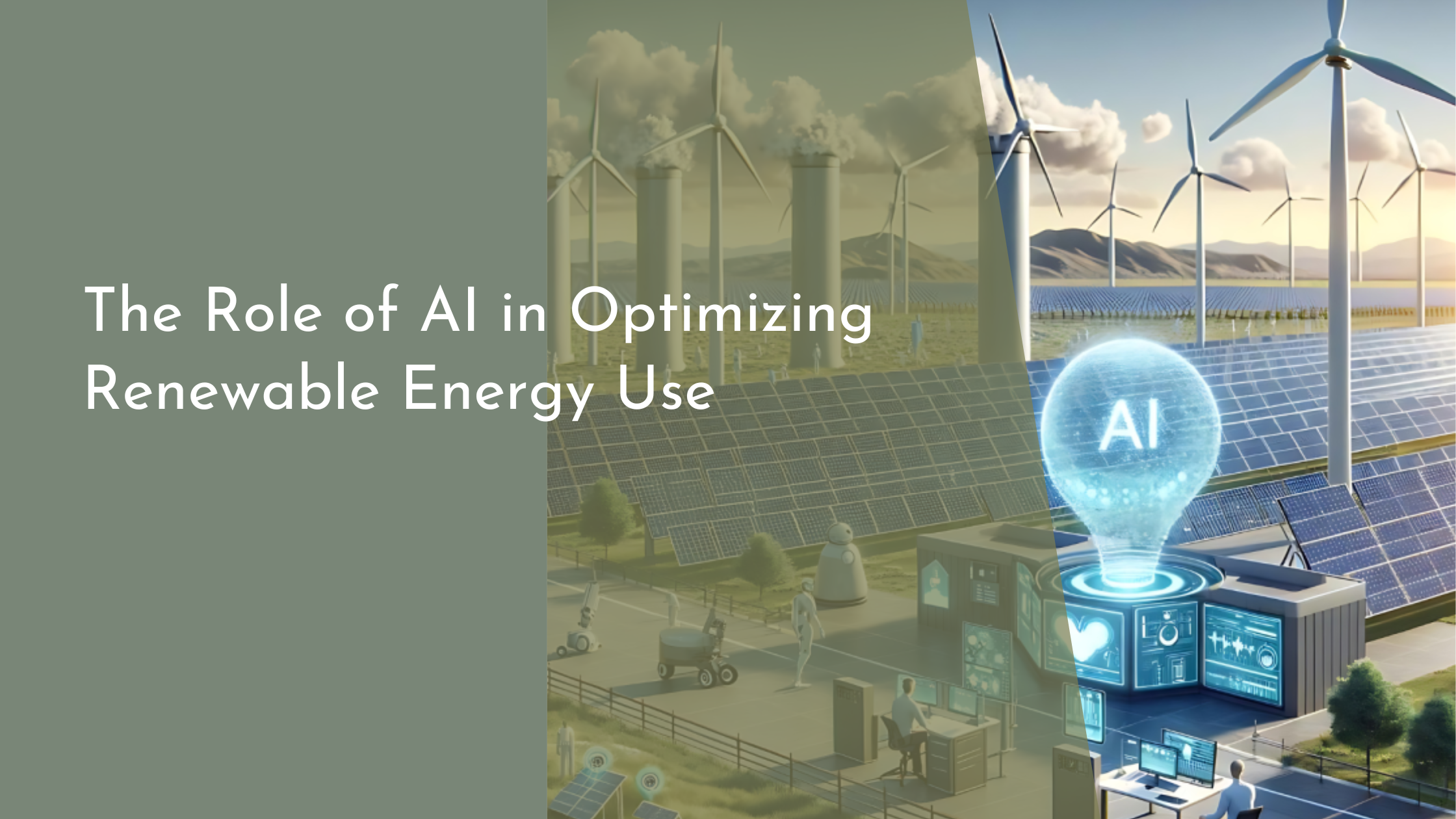The Role of AI in Optimizing Renewable Energy Use
As the world grapples with climate change and the pressing need for sustainable energy solutions, renewable energy sources like solar, wind, and hydroelectric power have become increasingly prominent. However, harnessing the full potential of these resources is no simple task. This is where Artificial Intelligence (AI) steps in, offering transformative solutions that optimize the use of renewables, increase efficiency, and pave the way for a sustainable future. By leveraging AI technologies, energy systems are becoming smarter, more adaptive, and significantly more efficient.
Understanding AI’s Impact on Renewable Energy
Artificial Intelligence is fundamentally reshaping the renewable energy landscape. It plays a crucial role by automating and optimizing various processes within energy systems. AI technologies analyze massive amounts of data generated from renewable energy sources to improve performance and predict future energy demands. By doing so, they reduce waste and ensure that renewable energy is utilized to its fullest potential. This not only enhances the operational efficiency of renewable energy systems but also makes them more financially viable.
Moreover, AI facilitates the integration of renewable energy into existing power grids. It helps overcome challenges associated with the intermittent nature of renewable sources such as solar and wind. By predicting fluctuations in energy production and demand, AI ensures a stable and reliable energy supply. This capability is essential for transitioning from traditional fossil fuels to greener alternatives, as it ensures energy stability even when the sun isn’t shining or the wind isn’t blowing.
Advanced Algorithms for Energy Efficiency
Advanced algorithms are at the heart of AI’s ability to boost energy efficiency. Machine learning techniques, for instance, learn from historical data to recognize patterns and make informed decisions. These algorithms can optimize the operation of solar panels or wind turbines, ensuring they are always functioning at their highest efficiency. By continuously analyzing performance data, AI can identify when maintenance is required, thus preventing costly breakdowns and reducing downtime.
Additionally, AI algorithms enhance demand-side energy management. They help consumers and grid operators alike to make smarter energy choices, such as shifting high-energy activities to times when renewable energy is plentiful. This demand response capability contributes to more balanced energy consumption, reduces strain on the grid, and supports a broader adoption of renewable sources. The net effect is a more responsive and adaptive energy system that maximizes the benefits of renewable energy.
Predictive Analytics in Renewable Energy Systems
Predictive analytics powered by AI is revolutionizing how renewable energy systems are managed. By examining historical and real-time data, predictive models can forecast energy production levels and identify potential issues before they arise. For example, in solar energy, AI can predict how factors like cloud cover or dust accumulation on panels will impact electricity generation, allowing for proactive management and optimization.
Furthermore, predictive analytics enable more effective energy storage solutions. By anticipating future energy needs and production levels, AI helps in optimizing the charging and discharging cycles of batteries, ensuring that excess solar or wind energy is stored for future use. This capability is crucial for bridging the gap between energy production and consumption, especially in regions where renewable energy sources are not consistently available. Thus, AI-driven predictive analytics play a vital role in creating a more resilient and reliable renewable energy infrastructure.
The future of renewable energy is indeed bright, thanks to the growing integration of AI technologies. By enhancing efficiency, reliability, and resilience, AI is helping to unlock the full potential of renewable energy sources, driving us toward a more sustainable and environmentally friendly energy landscape. As AI continues to advance, its role in renewable energy optimization will only grow, presenting new opportunities for innovation and collaboration.
In this era of technological advancement, the synergy between AI and renewable energy represents a significant leap forward in our fight against climate change. By continuing to harness the power of AI, we can create smarter energy systems that not only meet our current demands but also ensure a cleaner, greener planet for future generations.

